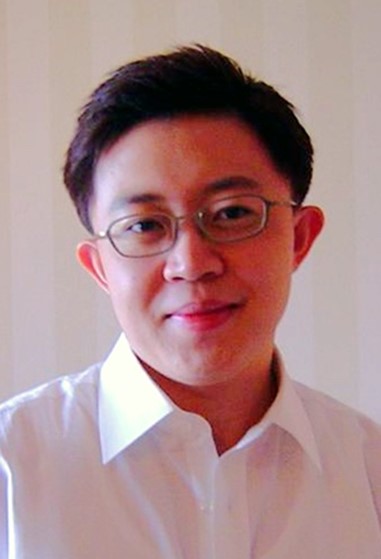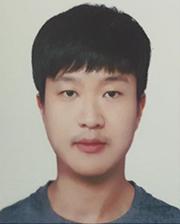Tutorials
From E2E (End-to-End) to VLA (Vision-Language Action) Models for Self-driving

Prof. Jinkyu Kim
Korea University
Abstract
The realm of self-driving technology has witnessed a paradigm shift, transitioning from traditional, modular approaches to more unified, end-to-end (E2E) architectures. E2E models, by directly mapping raw sensor data to vehicle actions, have simplified the development process and improved overall performance. However, the complexity of real-world driving scenarios demands a deeper understanding of not just visual information, but also the underlying semantic context.
This presentation delves into the evolution of self-driving models, starting from E2E architectures and culminating in the emergence of Vision-Language Action (VLA) models. VLA models leverage the power of natural language to provide a richer understanding of the driving environment, enabling more nuanced decision-making. By examining the progression from E2E to VLA models, we aim to provide insights into the future of self-driving technology and the potential benefits of incorporating language-based reasoning into autonomous systems.
Bio
Jinkyu Kim is an Assistant Professor of the Department of Computer Science and Engineering at Korea University. He was a research scientist at Waymo (formerly the Google’s self-driving car project), conducting cutting edge research to develop new solutions related to autonomous driving, in particular, to solve outstanding challenges in planning and behavior prediction. He received his Ph.D. in Computer Science from UC Berkeley (advisor: Prof. John Canny) and was part of Berkeley AI Research (BAIR) and Berkeley DeepDrive (BDD). He researched to build explainable and advisable models that can explain their rationale, characterize their strengths and weaknesses, and convey an understanding of how they will behave in the future. Currently, He is interested in (1) Image, Text, Sound Multi-modal Representation Learning, (2) Machine Learning for Self-driving Vehicles at Scale, (3) Continual and Life-long Learning, (4)Domain Adaptation and Generalization.
Energy-efficient Environmental-resilient Transceivers for Body Channel Communication

Prof. Jian Zhao
Shanghai Jiao Tong University
Abstract
This tutorial provides a comprehensive exploration of key building blocks for wireless body-area networks (WBAN), with a focus on body channel communication transceivers. Participants will dive into the fundamentals of circuit design and channel loss compensation techniques, gaining practical expertise in applying these technologies to fields such as healthcare, security, and entertainment. Additionally, attendees will learn how to develop equivalent models for biomedical tissues, deepening their understanding of biological interactions in WBAN systems.
Bio
Jian Zhao, (S’14, M’17, SM’21) received his Ph.D. degree from School of Mechanical Engineering, Nanjing University of Science and Technology, China, in 2017. From 2012 to 2015, he worked as a visiting scholar in the VLSI and Signal Processing Lab, National University of Singapore, where he designed CMOS readout circuits for MEMS sensors. In 2017-2019, he joined the Department of Electronic Engineering, Tsinghua University as a post-doctoral researcher developing ICs for wireless body area networks. He is currently an Associate Professor in the Department of Micro/Nano Electronics, Shanghai Jiao Tong University, China. He has authored and co-authored over 50 technical papers and 2 book chapters. His current research interests include biomedical & bio-inspired circuits and systems. Since 2019, he has also served as an organization committee/technical program committee/review committee for many prestigious IEEE conferences. These conferences include ISCAS, ISICAS, AICAS, IFETC, ICTA and APCCAS. He also serves as an Associate Editor for IEEE Transactions on Biomedical Circuits and Systems, IEEE Transactions on Circuits and Systems I: Regular Papers (TCAS-I) and SPJ Cyborg and Bionic Systems. He is the Co-founder and Chair of IEEE Shanghai Section Young Professional Affinity Group.
Capacitance-to-Digital Converters (CDCs), Interfacing with Capacitive Sensors

Prof. Minkyu Je
KAIST
Abstract
With the rise of the Internet of Things (IoT) and the proliferation of wearable smart devices, the demand for diverse sensor systems has surged significantly. Many environmental and biomedical sensor systems rely on sensors that convert physical quantities into outputs such as capacitance, resistance, voltage, or current. Notably, capacitive sensing transducers are extensively utilized for IoT applications due to their favorable attributes of low noise and reduced temperature sensitivity. Various capacitive sensors find a broad application range in sensing various physical quantities, such as pressure, humidity, acceleration, gas molecules, and proximity. To read out from such capacitive sensors and extract useful information, proper interface circuits or capacitance-to-digital converters (CDCs) need to be accompanied. Despite well-established studies and ongoing active research on CDCs, there are challenges caused by design trade-offs among various performance parameters, including energy efficiency, sensing resolution, and input range. In this talk, the basic principles of capacitive sensors, design goals and trade-offs of CDCs, and traditional CDC circuit structure will be reviewed first. Then, more recent and advanced circuit structures and design techniques proposed to improve energy efficiency, sensing resolution, and input range will be introduced. Also, we will discuss the future research direction of the CDC design and application.
Bio
Minkyu Je received his B.S., M.S., and Ph.D. degrees in Electrical Engineering and Computer Science from the Korea Advanced Institute of Science and Technology (KAIST), Daejeon, Korea, in 1996, 1998 and 2003, respectively. In 2003, he joined Samsung Electronics, Giheung, Korea, as a Senior Engineer. From 2006 to 2013, he was with the Institute of Microelectronics (IME), Agency for Science, Technology, and Research (A*STAR), Singapore. From 2011 to 2013, he led the Integrated Circuits and Systems Laboratory at IME as a Department Head. He also served as Program Director of the NeuroDevices Program under the A*STAR Science and Engineering Research Council (SERC) from 2011 to 2013 and was an Adjunct Assistant Professor in the Department of Electrical and Computer Engineering at the National University of Singapore (NUS) from 2010 to 2013. He was an Associate Professor in the Department of Information and Communication Engineering at the Daegu Gyenogbuk Institute of Science and Technology (DGIST), Korea, from 2014 to 2015. Since 2016, he has been an Associate Professor in the School of Electrical Engineering at KAIST, Korea. His main research areas include the development of advanced IC platforms, which encompass smart sensor interface ICs, ultra-low-power wireless communication ICs, high-efficiency energy supply and management ICs, ultra-low-power timing ICs, and resource-constrained computing ICs. He also focuses on microsystem integration, leveraging these advanced IC platforms for emerging applications such as intelligent miniature biomedical devices, ubiquitous wireless sensor nodes, and future mobile devices. He is an editor of one book, an author of six book chapters, and has more than 360 peer-reviewed international conference and journal publications. He also has more than 70 patents, either issued or filed. He has served on the Technical Program Committee and Organizing Committee for various international conferences, symposiums, and workshops, including IEEE International Solid-State Circuits Conference (ISSCC), IEEE Asian Solid-State Circuits Conference (A-SSCC), and IEEE Symposium on VLSI Circuits (SOVC). He was a Distinguished Lecturer of the IEEE Circuits and Systems Society from 2020 to 2022 and is currently serving as an Associate Editor of IEEE Transactions on Biomedical Circuits and Systems (TBioCAS).
Learning Methodologies with Insufficient Labeled Data for Vision Tasks

Prof. Sung In Cho
Dongguk University
Abstract
This tutorial provides a comprehensive exploration of learning methodologies to improve the performance of deep learning models while using limited labeled data for vision tasks. Participants will explore semi-supervised learning and domain adaptation techniques based on consistency regularization. Additionally, attendees will learn how measuring semantic similarity between samples improves deep learning model performance by using a metric tensor to estimate the embedding space's curvature.
Bio
Sung In Cho received the B.S. degree in electronic engineering from Sogang University, Seoul, Republic of Korea, in 2010, and the Ph.D. degree in electrical and computer engineering from the Pohang University of Science and Technology, Pohang, Republic of Korea, in 2015. From 2015 to 2017, he was a Senior Researcher with LG Display. From 2017 to 2019, he was an Assistant Professor of electronic engineering at Daegu University, Gyeongsan, Republic of Korea. He is currently an Associate Professor with the Department of AISW Convergence, Dongguk University, Seoul. His current research interests include image analysis and enhancement, video processing, computer vision, deep learning and learning methodologies with limited labeled data. He has authored and co-authored over 100 technical papers. Dr. Cho was a recipient of the IEIE/IEEE Joint Award for Young Scientist and Engineer in 2024.
Ensuring Reliability in AI Systems: Prospects for Error Tolerance,
Optimization Techniques, and Accelerators

Prof. TOMIOKA Yoichi
The University of Aizu
Abstract
As AI is increasingly adopted in industry, ensuring reliability is becoming even more critical. AI systems are utilized across a variety of fields, and high reliability is essential, particularly in areas where human lives are at stake, such as self-driving and medical diagnostics. Additionally, devices that operate in space environments, such as satellites, must possess strong error resistance against cosmic ray interference. In this tutorial, we will first explore the reliability requirements for future AI applications. Next, focusing on error tolerance as a key measure of reliability, we will explain the effects of deep learning model optimization techniques, such as quantization and pruning, and their impact on error tolerance. We will also examine the evolution of deep learning accelerators and their role in enhancing error tolerance. Finally, we will discuss future challenges and prospects for ensuring the reliability of AI systems.
Bio
He received the B.E., M.E., and D.E. degrees from the Tokyo Institute of Technology, Tokyo, Japan, in 2005, 2006, and 2009, respectively. He was a Research Associate with the Tokyo Institute of Technology, until 2009. He was an Assistant Professor with the Division of Advanced Electrical and Electronics Engineering, Tokyo University of Agriculture and Technology, until 2015. He was an Associate Professor with the School of Computer Science and Engineering, The University of Aizu, until 2018, where he has been a Senior Associate Professor, since 2019. His research interests include image processing, hardware acceleration, efficient and fault-tolerant AI systems, electrical design automation, and combinational algorithms.
The Future of High-Speed Wireline: Innovations in DSP-Based Transceiver Design

Prof. Min-Seong Choo
Hanyang University
Abstract
This talk primarily covers an introduction to transceiver design for high-speed wireline communication. It explains the limitations of conventional analog-based transceivers, discusses in detail why digital-based designs are gaining attention, and outlines the latest trends in digital-based TRX design. Additionally, attendees can expect to learn how to model DSP-based transceivers, along with key design issues and considerations for each building block.
Bio
Min-Seong Choo, (M’17) received B.S. and Ph.D. degrees in electrical and computer engineering from Seoul National University, Seoul, South Korea, in 2012 and 2019, respectively.
In 2019, he was a Post-Doctoral Researcher with the Inter-University Semiconductor Research Center, Seoul National University in the design of RCD/DB interface circuits for commercial DDR5 memory. From 2019 to 2020, he was a Research Scholar with the Center for Nanotechnology, NASA Ames Research Center, Moffet Field, CA in research of radiation-hardened neuromorphic processor design. From 2020 to 2022, he was a Post-Doctoral Research Scientist at Columbia University, New York, NY in the design of a multi-wavelength optical transceiver. He is currently an Assistant Professor at Hanyang University, Ansan, South Korea, in the school of electrical engineering. His research interests include phase-locked loops (PLLs), clock and data recovery (CDR) circuits, injection-locked oscillators (ILOs), memory system architecture, neuromorphic computing, in-memory computing, optical interfaces, and design automation. He serves as a reviewer for various journals, including the IEEE Journal of Solid-State Circuits, IEEE Transactions on Circuits and Systems I/II, IEEE Transactions on Computer-Aided Design of Integrated Circuits and Systems, and IEEE ACCESS.

